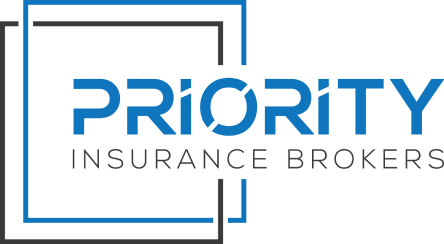Introduction
One of the vital pillars that support the structure of any successful business is understanding and effectively managing risk. A significant component of this process is insurance. Among various types of insurance coverages, one type stands out in its relevance to businesses: management liability insurance explained. But why is it important to grasp the intricacies and how can it contribute to a business’s sustainability?
Management liability insurance, plays a pivotal role in safeguarding the company’s decision-makers. It provides coverage against claims that may arise from decisions and actions taken within the scope of their regular duties. This insurance, thus, acts as a shield for the management, protecting them from personal accountability and potential financial loss.
To fully appreciate the significance of management liability insurance, it’s essential to understand the nuanced operations of a business. Let’s consider the construction industry, for instance. In the complex ecosystem of construction, general contractors often hire subcontractors to perform specific tasks, from electrical work to carpentry. These subcontractors are specialists in their respective fields, rendering them an invaluable resource for the successful completion of complex projects. However, their role also introduces additional layers of liability.
As elucidated in our discussion on subcontractors’ coverage, the general contractor’s insurance may not provide extensive coverage for accidents or damage caused by subcontractors. Therefore, understanding how management liability insurance works and integrating it into the broader insurance framework is crucial for comprehensive protection.
The Core Components
Now that we’ve explained management liability insurance and its significance, let’s delve deeper into its core components. This insurance is not a monolithic entity; rather, it is made up of several crucial elements. Each element caters to different risks inherent in the management of a business. Let’s take a detailed look at some of these key coverage areas.
Directors and Officers Liability
Firstly, one of the primary elements is Directors and Officers (D&O) liability. This component is designed to protect the personal assets of company directors and officers from potential personal losses if they are legally held responsible for wrongful acts conducted in their capacity as leaders of the company. These wrongful acts could be anything from financial mismanagement to regulatory non-compliance. It is important to note that this coverage extends to legal defense costs, which can be a significant financial burden in any litigation process.
Employment Practices Liability
Another major aspect of management liability insurance is Employment Practices Liability (EPL). As the name suggests, this coverage area is related to employment practices and the potential claims that can arise from them. For instance, if an employee alleges discrimination, wrongful termination, or harassment, EPL coverage comes into play. This is a critical component considering the potential reputational damage and financial loss that such claims could cause.
Crime Coverage
Last, but certainly not least, is crime coverage. This component of management liability insurance covers direct losses and damages to a company’s assets due to crimes such as theft, fraud, or forgery. This coverage extends beyond internal crimes committed by employees, also covering external crimes that could negatively impact a company’s financial standing.
In essence, management liability insurance is a multifaceted umbrella safeguarding decision-makers and the company from various potential threats. Each of these elements plays a pivotal role, serving as a protective shield against specific risks associated with managing a business. However, it’s crucial to remember that insurance isn’t a one-size-fits-all proposition. Different companies have unique needs, risks, and operational contexts, necessitating a tailored approach to insurance coverage.
Understanding the Benefits
Management liability insurance offers numerous protections and advantages that extend beyond mere financial safeguarding. It serves as a solid shield against potential risks and threats that could otherwise have a devastating impact on your business.
Key Protections Offered
One salient feature is its ability to protect against accusations of mismanagement. For directors and officers, this insurance provides an incredible safety net. Should a claim arise due to alleged mismanagement, the policy covers the defence costs and any resulting settlements or judgements. This protection is critical considering the complex and litigious world we operate in today, where board members and executives are under constant scrutiny.
Beyond this, it also encompasses Employment Practices Liability. In the event of claims related to employment practices such as wrongful termination, discrimination, or harassment, this aspect of the insurance can be a lifeline for your company. It provides coverage for legal defence costs, settlements, and judgements.
Real-life Examples
To truly grasp how management liability insurance can protect a business and its management, let’s turn to real-life scenarios. Consider a hypothetical cleaning business, “Sparkle Clean”. Without adequate insurance, Sparkle Clean may miss out on growth opportunities and face severe financial strain due to unexpected costs, legal issues, or reputational damage. However, with a robust insurance policy – including this policy – it has a protective shield against potential hazards.
In a scenario where Sparkle Clean is faced with a lawsuit alleging mismanagement, the directors and officers liability component of their policy comes into play, covering legal defence costs. If an employee files a claim for wrongful termination, the Employment Practices Liability coverage helps handle the financial implications. These examples underline the importance of having a comprehensive policy as part of your risk management strategy.
In the real world, companies like Sparkle Clean exist, and these are not mere hypothetical situations. Such incidents happen more often than one might think, and the financial consequences can be devastating for small businesses.
How Management Liability Insurance Works in Australia

Having understood the core components and benefits of management liability insurance, it’s time to delve into how these principles apply within a specific geographical context.
Management Liability Insurance in Australia
In Australia, management liability insurance operates under a distinct legal framework and market dynamics. The liability risks faced by directors and officers are influenced by the Australian Securities and Investments Commission (ASIC), which enforces company and financial services laws to protect Australian consumers, investors, and creditors. As such, insurance policies must be tailored to meet these specific regulations and obligations.
Insurance brokers play a critical role in this landscape by offering customised advice and placement services for clients across Australia. These professionals specialise in providing comprehensive business insurance packages that consider the unique needs and risks associated with various industries. This level of specialisation is crucial given the diversity of the Australian business landscape, where organisations range from IT contractors and mining companies to builders and roofers.
Australian-Specific Regulations and Obligations
When considering management liability insurance in Australia, it is essential to understand the specific regulations and obligations that might impact coverage. For instance, the Australian Corporations Act 2001 imposes strict duties on directors and officers, leading to potential personal liabilities if these duties are breached. Therefore, the Directors and Officers liability component becomes a vital protection mechanism for company leaders.
Similarly, employment practices liability insurance assumes increased relevance due to stringent workplace laws enforced by bodies like the Fair Work Commission. Companies must navigate complex issues such as unfair dismissal, discrimination, or harassment claims, which can be financially crippling without the proper insurance coverage.
Another aspect unique to Australia is the role of the Australian Financial Complaints Authority (AFCA), a free and independent dispute resolution scheme for consumers who have complaints about their insurance policies. Having management liability insurance that aligns with AFCA’s guidelines ensures a smoother resolution process in the event of disputes.
The Crucial Role of Insurance Brokers
Given these complexities, insurance brokers become invaluable partners in navigating the intricacies of management liability insurance in Australia. They provide competitive insurance policies tailored to individual business needs, while ensuring compliance with local regulations.
For instance, our commitment to treating our clients as a ‘priority’ is part of our holistic approach, which includes reviewing policies annually and providing effective business insurance solutions. This client-centric methodology is common among Australian insurance brokers, demonstrating their integral role in securing appropriate management liability insurance.
In essence, understanding how management liability insurance operates within an Australian context is crucial for businesses operating in this region. With unique regulations and obligations in play, companies need to ensure their coverage is comprehensive and compliant. And, with the help of proficient insurance brokers, they can successfully navigate this complex landscape.
Conclusion
It’s clear that management liability insurance isn’t a one-size-fits-all proposition. Instead, it should be tailored to cater to the distinct risks and needs of your business. It’s not just about having an insurance policy—it’s about having the right policy. And that’s where expert advice and tailored solutions come into play.
If you’re a business owner or part of a management team, it’s time to reassess your current insurance cover.
- Is it adequate?
- Does it address all potential risks?
If you’re unsure, don’t hesitate to seek professional advice. Experts can help you navigate the cost of liability insurance, secure the best coverage, and ultimately safeguard your business against potential pitfalls.
Frequently Asked Questions
What is management liability insurance?
Management liability insurance is a comprehensive policy designed to protect a company and its key individuals from potential claims arising from their managerial decisions and actions. This can include allegations of misconduct, breaches of duty, employment practices, and various other managerial risks.
Is management liability the same as directors and officers insurance?
While there are similarities between management liability insurance and directors and officers (D&O) insurance, they are not the same. D&O insurance primarily covers directors and officers against claims arising from their roles. In contrast, management liability insurance offers broader protection, encompassing not only the directors and officers but also the company itself and often includes other covers like employment practices liability and corporate legal liability.
What does management liability insurance cover?
Management liability insurance typically covers claims related to:
– Breaches of fiduciary duties and responsibilities.
– Employment-related matters such as wrongful termination, discrimination, or harassment.
– Allegations of misrepresentation or misconduct.
– Regulatory or statutory breaches.
– Claims from creditors, particularly in situations of company insolvency.
– Defence costs associated with any claims made against the insured individuals or the company.
How much is enough management liability insurance?
The right amount of management liability insurance largely depends on the company’s size, industry, operational risks, and other specific factors. It’s essential to evaluate the potential legal and compensation costs your business might face and choose a coverage limit that matches those risks. Consulting with a knowledgeable insurance broker can provide guidance tailored to your company’s unique needs.







